Truth also is the pursuit of it:
Like happiness, and it will not stand.
Even the verse begins to eat away
In the acid. Pursuit, pursuit;
A wind moves a little,
Moving in a circle, very cold.
How shall we say?
In ordinary discourse—
We must talk now. I am no longer sure of the words,
The clockwork of the world. What is inexplicable
Is the ‘preponderance of objects.’ The sky lights
Daily with that predominance
And we have become the present.
We must talk now. Fear
Is fear. But we abandon one another.
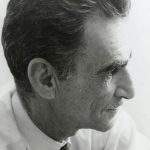

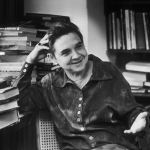

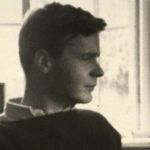
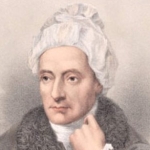


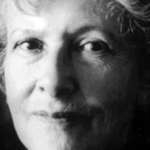
Comment form: